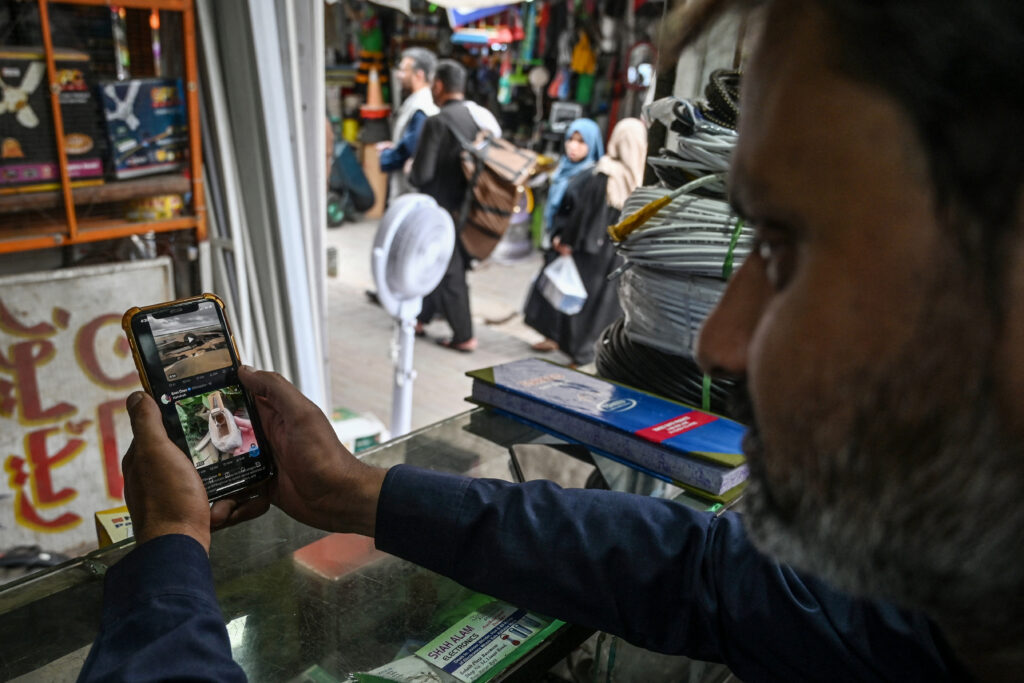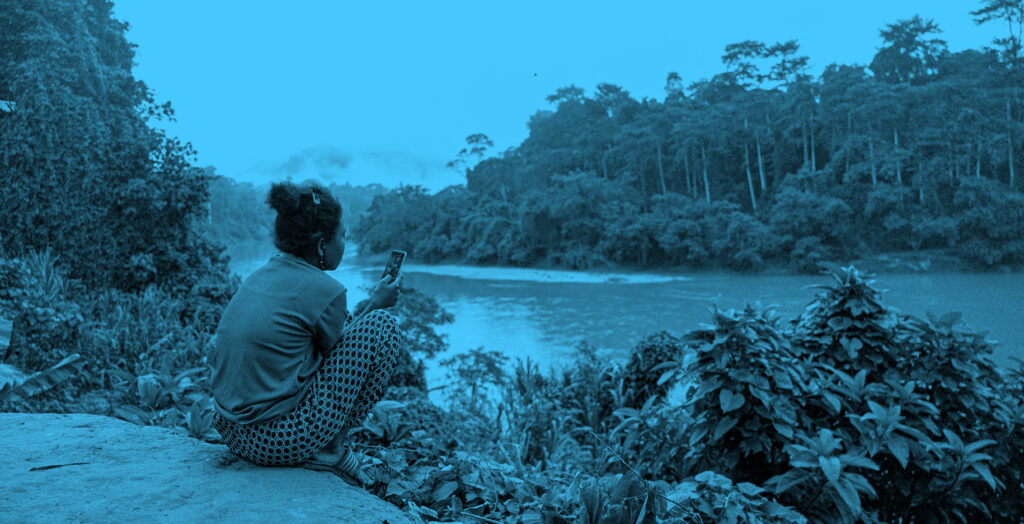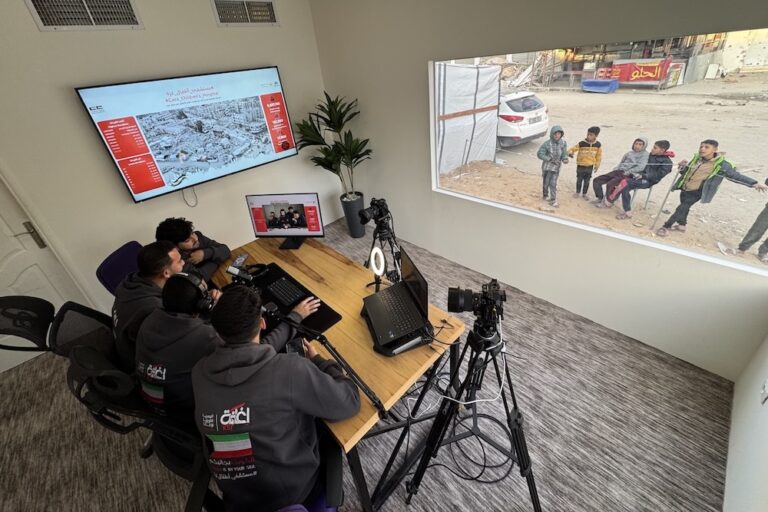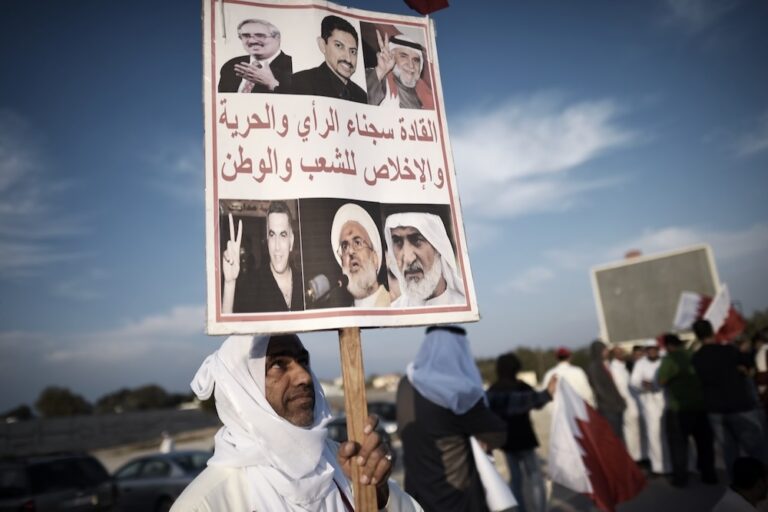From digital repression to government censorship, access to information remains under siege. IFEX members are pushing back to ensure information remains a public good.
As a highly collaborative network of over 100 independent civil society organisations working on a broad range of free expression and information issues at the national, regional, and international levels all around the globe, IFEX is an effective force for positive change in a rapidly changing world. We share here examples of our work and impact strengthening freedom and integrity of information in 2024.
Recognising the power that the free flow of information brings to communities, authoritarian actors and states restrict independent communications sources and channels in order to shape and monopolise the dominant narratives, and 2024 was no exception. The consolidation and control of the media, including social media, is stifling the free exchange of ideas, eroding access to information, and fueling polarisation. Information inequities disproportionally affect those who have historically been excluded from information ecosystems and who face intersecting barriers to access information. Systemic issues such as misogyny, racism, classism, and ableism play a critical role in our ability to access accurate information in meaningful ways.
Advancing the vision of those on the ground
Throughout 2024, IFEX members worked to ensure that the perspectives of affected communities were heard in decision-making spaces and that community-led information initiatives could thrive.
Advocacy at the UN | Chile
The effectiveness of the Universal Periodic Review (UPR) process requires that its recommendations are followed by States. IFEX provided funding to Derechos Digitales to carry out direct advocacy at the UN ahead of Chile’s 4th UPR, which took place on 30 April 2024.
In order to bring a more intentional, systemic, and intersectional lens to FoE&I issues, Derechos Digitales collaborated with Amaranta ONG and Miles Chile, two organisations working on sexual and reproductive rights, ahead of the review. Through their coalition, they were able to showcase the impacts of online gender-based violence as well as the effects that the digital divide is having on indigenous and rural populations, specifically. The report explored the barriers that women living in remote areas face in accessing information due to limited internet access, and the impact on their ability to exercise sexual and reproductive rights, given that most health centres are located in urban areas.
The advocacy efforts of Derechos Digitales in Geneva were very successful. By sharing the report with key delegations, key recommendations related to gender and access to information were included. The work gave greater visibility to threats faced by human rights defenders and other vulnerable groups, and articulated clear calls to action, reiterating Chile’s outstanding commitments.
“We learned that the advocacy process during the UPR pre-sessions must necessarily be a collective effort, accompanied by organisations that share multiple interests […] the more diverse and numerous the group requesting meetings and appointments with delegations from countries in Geneva, the greater the likelihood of a positive response to arrange information exchange meetings.” Derechos Digitales
Battling misinformation in a context of conflict | Lebanon
The escalation of Israeli attacks on Lebanon caused massive civilian casualties and displaced thousands of people. In a country that was already grappling with a severe economic crisis, the invasion and bombardment worsened living conditions and created further uncertainty for its citizens.
Barriers to accessing information and the spread of misinformation during a crisis can generate further chaos. In 2024, after a successful jointly-funded project with Maharat in 2023, we partnered on another joint application to secure resources to reinforce journalists’ ability to report fully, accurately, freely, and safely in Lebanon. This project has significantly contributed to enhancing the quality and integrity of journalism, promoting transparency, and advocating for journalists’ protection.
The work enabled Maharat to launch an active newsroom that monitors public discourse and produces stories that correct misinformation. In addition, Maharat launched a six-month fellowship program for young journalists, targeting topics related to governance, transparency, fact-checking, and access to information. The participants of the program, mostly women, were supported through mentorship and training.
In this second iteration of the project, we were able to expand in scale and scope. This included inviting IFEX member GCHR into the partnership. In December 2024, they organised an in-person Digital Security and Legal Safety workshop aimed at enhancing the safety of civil society partners and journalists. It included a discussion on attacks on human rights defenders’ credibility, the nature of their work, and the tools they use. In preparation for Lebanon’s next Universal Periodic Review process at the UN, GCHR and IFEX will collaborate on strengthening advocacy and campaigning efforts.
Protecting critical voices | Nigeria
Under the stated aim of protecting citizens, the government of Nigeria approved a Cybercrime Act in 2015 that restricted access to social media and gagged dissenting voices. While the law was amended in February 2024, it is still being used to prosecute journalists.
To counter these abuses, and with financial assistance from IFEX, CEMESO developed a training program on Digital Autonomy and Resilience for Nigerian media workers and digital rights actors. The in-person training, held on 13-14 March in Lagos, worked to enhance understanding of online censorship and cyberattacks.
CEMESO also hosted a virtual session that introduced journalists and media professionals to digital tools and resources. A second virtual session focused on online harms for human rights defenders working with marginalised groups, including youth, people with disabilities, vulnerable online groups, and women journalists. A Train the Trainers’ version was developed to extend the program’s reach. Ten people, mainly journalists and media professionals, have received training so far to bring the program back to their communities.
“This training has been an eye-opener. I now understand how to identify false information, verify sources, and protect myself online. More importantly, I am ready to pass on this knowledge to others in my community.” Train the Trainers program participant
Connecting local contexts to global agendas | Mongolia
IFEX has been working closely with Globe International Center (GIC) to promote the free flow of information in Mongolia and uphold its democracy and civic society. IFEX has supported the organisation with funding to advance its programs and activities as it works hand-in-hand with other civil society actors for a more robust democracy.
GIC hosted seven thematic and multi-sectoral discussions related to FoE&I over the course of this 2023-2024 project. The sessions, attended by more than 335 participants, offered a unique opportunity for GIC to collaborate with local stakeholders, international organisations, and government institutions, drawing linkages between the local and regional trends and broader international experiences.
Action to (re)shape digital norms and standards
Online communications and burgeoning technologies offer new opportunities for connection, communication, expression, and information sharing, but they must be developed and applied in line with human rights. Digital platforms threaten to widen inequalities and deepen systems of oppression. Technologies, including AI, are being used in a way that amplifies the dangers of surveillance, disinformation, and the manipulation of elections. The picture becomes even more complex when laws and regulations designed to counter these threats are weaponised for censorship and control. This situation must be tackled through coordinated international cooperation. As a global network, IFEX is uniquely positioned to convene and connect actors to advance common agendas around digital rights.
Countering restrictive laws | Pakistan

A man uses the social media platform X on his phone at a market in Islamabad, Pakistan on April 17, 2024. Farooq Naeem via Getty Images
Pakistan has experienced a rapid decline of freedoms following the February 2024 election. Restrictions on FoE&I included internet disruptions, online censorship and phone suspensions. Against this backdrop, legislative proposals to further regulate the digital environment raised additional concerns.
In August, IFEX released a statement that highlights how legislation to address digital issues in Pakistan is creating a repressive and over-regulated environment that is suffocating FoE&I. There is insufficient input and oversight by civil society, media, and other relevant stakeholders. The legislation also risks intensifying negative impacts on women and marginalised communities, as has been seen in the implementation of the Prevention of Electronic Crimes Act (PECA). Our statement identified a series of laws that exacerbate the already-repressive online environment by increasing censorship online, implementing harsh penalties for online defamation, and expanding surveillance.
Collaboration on global digital rights
The UN Convention Against Cybercrime is intended to prevent and combat cybercrime at an international level. While the dangers it aims to address are real, the treaty could harm not only access to information, but free expression and privacy rights.
Since 2023, IFEX has collaborated with members and allies to raise awareness among the IFEX network and other stakeholders about the convention’s shortcomings, and has joined efforts to call on negotiating parties to address these in the final text. In January 2024, IFEX signed and circulated among the network a statement led by our ally Access Now in partnership with IFEX members ARTICLE 19, Electronic Frontier Foundation, Human Rights Watch, and Privacy International calling for changes to the treaty to better safeguard human rights. During the subsequent process, industry and civil society found common ground and produced an open letter with shared concerns.
As the final decision approached, IFEX signed an urgent appeal addressed to the delegations of the Member States of the EU and the European Commission stating that, absent meaningful changes, the treaty should be rejected.
The Convention was adopted, but CSO efforts were not in vain. The final draft made it clear that implementation must be consistent with obligations under international human rights law, with specific reference to the rights to freedom of expression, opinion, peaceful assembly, and association, and a list of cybercrime offences that would criminalise free expression was ultimately dropped after civil society advocated against including speech-related offenses.
Champions of access to and integrity of information
IFEX’s Faces of Free Expression project shares the stories of individuals who are leading some of the most important struggles of our time, and whose work and tenacity are an inspiration. In 2024, IFEX published two new profiles with a focus on access to information.
Sulemana Braimah | Former journalist and long standing Ghanaian advocate, Braimah is the Executive Director of Media Foundation for West Africa. He is a key figure in the defense and promotion of information integrity and reliability in the region.
Patricia Campos Mello | A Brazilian journalist, Campos Mello was subjected to a gender-focused smear and disinformation campaign after publishing an article that exposed a campaign by some of President Bolsonaro’s backers to flood Whatsapp with misinformation. She fought back and eventually achieved a legal victory.
Click here to check out IFEX’s 2024 Annual Report: Forging Collective Resistance.



